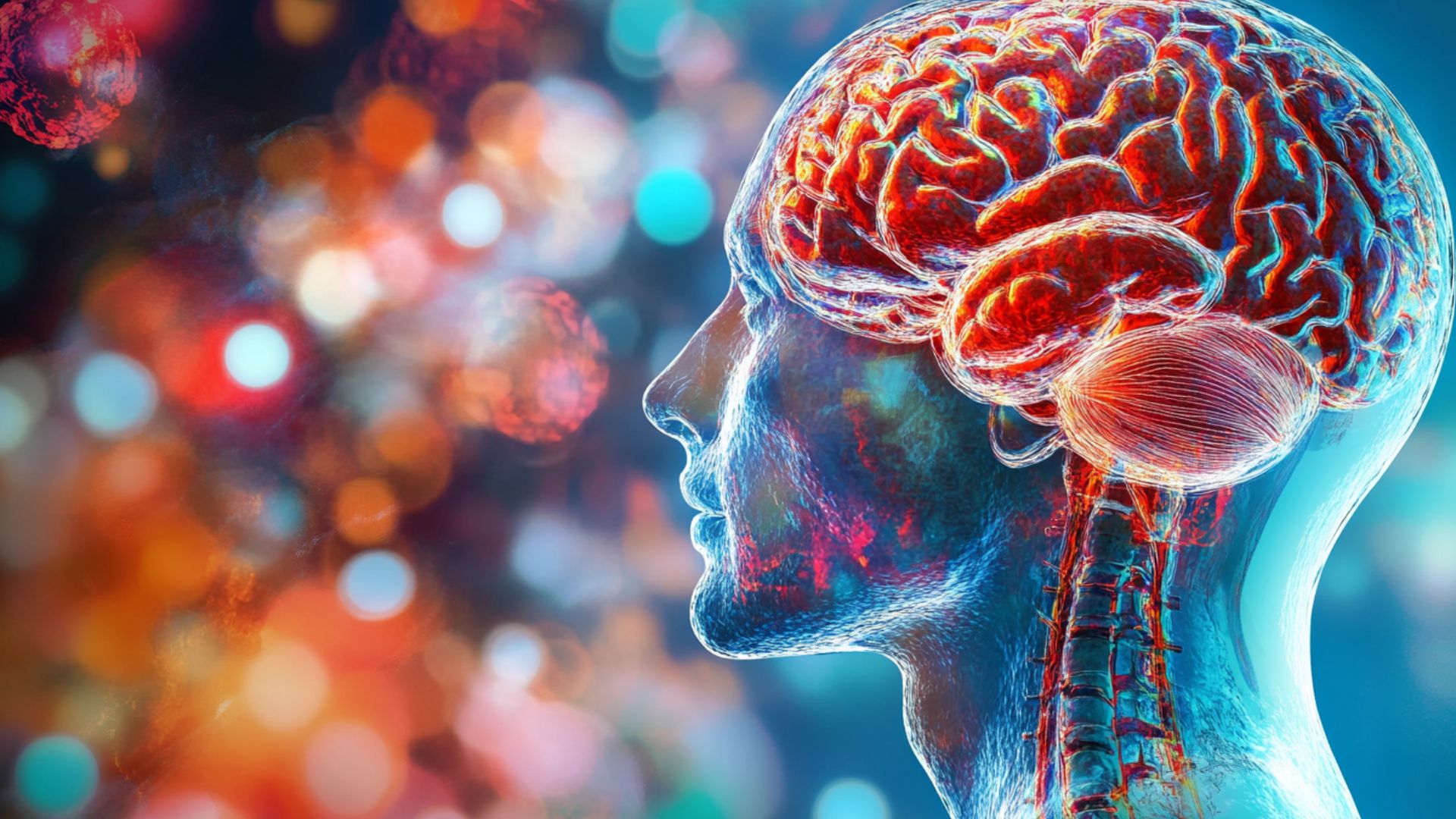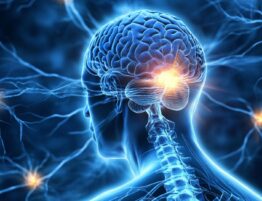Astrocyte reactivity is the brain’s inflammatory response to injury or stress. This process activates white blood cells that release substances to fight off threats. Though beneficial in brief episodes, persistent inflammation damages brain function. The link between brain inflammation and cognitive decline is increasingly evident. Chronic inflammation damages nerve cells and disrupts communication between them, accelerating brain aging. This leads to memory issues and mental decline. Alzheimer’s disease and dementia are linked to overactive immune cells in the brain. Aging brains become more vulnerable as inflammation accumulates over time.
Stress, poor diet, and infections can trigger or worsen inflammation. Research shows inflammatory markers are elevated in people with memory problems. Early intervention may reduce inflammation and protect cognition. Understanding brain inflammation and mental decline helps address age-related memory issues. Let’s explore lifestyle changes and medical treatments that can help. Ongoing studies aim to find therapies that target inflammation and offer hope for preserving brain function.
What Causes Brain Inflammation?
Neuroinflammation occurs when the brain’s immune system becomes activated. It protects against threats but can harm cognition when chronic. The link between cognitive decline and neuroinflammation is well-established. Chronic inflammation damages neurons and impairs memory while accelerating cognitive decline. Many factors, both internal and external, can trigger this process. Understanding these causes helps address neuroinflammation, prevent memory loss, and protect brain health.
Common causes of brain inflammation include:
- Infections: Viruses or bacteria, like those causing meningitis, trigger immune responses
- Traumatic Brain Injury: Concussions or head trauma spark inflammation
- Chronic Stress: Prolonged stress raises cortisol levels and promotes inflammation
- Poor Diet: High-sugar or processed foods increase inflammatory markers
- Autoimmune Disorders: Conditions like multiple sclerosis attack brain tissue
Internal triggers include autoimmune diseases where the body mistakenly attacks brain cells, causing inflammation. Genetic predispositions can heighten immune responses and worsen brain inflammation. Aging naturally increases inflammation as immune cells become overactive. External triggers include environmental toxins like air pollution, which can cross the blood-brain barrier and trigger inflammation. Infections, including COVID-19, can cause lasting neuroinflammation. Chronic stress disrupts immune balance, elevating inflammatory chemicals that harm neurons.
Poor lifestyle choices like lack of sleep or excessive alcohol consumption amplify inflammation. Diets high in processed foods or low in antioxidants fuel neuroinflammation and memory loss. Physical injuries like concussions trigger immediate inflammatory responses that may persist. Addressing these triggers through diet, stress management, or medical intervention reduces inflammation. Consulting a healthcare provider can help identify your personal risk factors and protect against brain inflammation and cognitive decline.
Immune Response And Neurological Impact
The brain’s immune response plays a critical role in protecting the brain but can also harm it. When activated, the immune system releases chemicals that affect brain cells and influence inflammation. Short-term inflammation fights infections or injuries effectively. However, chronic inflammation damages neurons and impairs cognition. Understanding how the brain’s immune response impacts cells is crucial for addressing neurological health.
Key ways the brain’s immune response affects brain cells:
- Immune Cell Activation: Brain immune cells release inflammatory chemicals, triggering inflammation
- Neuron Damage: Chronic inflammation harms neuron connections and communication
- Oxidative Stress: Immune activity produces free radicals that stress brain cells
- Blood-Brain Barrier Disruption: Inflammation weakens this protective barrier
- Cognitive Impairment: Prolonged inflammation affects memory and focus
The brain’s immune response begins when microglia — the brain’s immune cells — detect threats like infections or trauma. They release inflammatory chemicals to fight the problem, initially protecting brain cells. However, this can backfire when prolonged. Chronic inflammation damages neuron structures and significantly disrupts communication between brain cells. This leads to memory loss, reduced focus, and cognitive decline. Oxidative stress from free radicals produced during immune activity further harms brain cells.
Early Signs Of Cognitive Decline From Inflammation
Brain inflammation and cognitive decline are closely linked. Stress, infections, or poor lifestyle choices often trigger chronic brain inflammation. This contributes to cognitive impairment over time. Early signs of mental decline can be subtle but significantly impact daily life. Recognizing these symptoms helps address inflammation early and protect brain health.
Key early signs of brain inflammation and cognitive decline:
- Brain Fog: Difficulty focusing or feeling mentally cloudy
- Memory Loss: Forgetting recent events, names, or conversations
- Slow Processing: Taking longer to solve problems or respond to questions
- Mood Changes: Increased irritability, anxiety, or emotional instability
- Fatigue: Mental exhaustion despite getting adequate rest
Brain fog is a common symptom that makes tasks like reading or decision-making feel effortful and draining. Memory loss, such as struggling to recall recent conversations, is often connected to inflammation in the brain. Slow processing affects work and daily activities as thoughts feel sluggish and unclear. Mood changes like increased irritability often accompany inflammation, impacting emotional well-being and relationships. Mental fatigue, even with sufficient sleep, suggests the brain is under stress from ongoing inflammation.
These symptoms stem from inflamed immune cells releasing chemicals that disrupt normal neuron function. Addressing brain inflammation and cognitive decline early through diet, exercise, or medical consultation can help reduce symptoms. Anti-inflammatory foods like berries and omega-3 rich fish may provide benefits. Consult a healthcare provider to identify the causes of cognitive impairment and develop a plan to support your brain health.
Chronic Inflammation And Long-Term Brain Health
Chronic brain inflammation is a persistent immune response that damages neurons and disrupts brain function over time. The link between brain inflammation, cognitive decline, and long-term health is well-established. Chronic inflammation contributes to severe neurological conditions that impair memory, focus, and overall brain health. Understanding these risks is vital for maintaining cognitive function as we age.
Key conditions linked to chronic brain inflammation:
- Alzheimer’s Disease: Plaques and tangles worsen with ongoing inflammation
- Parkinson’s Disease: Inflammation damages dopamine-producing neurons
- Depression: Chronic inflammation affects mood-regulating brain areas
- Multiple Sclerosis: Immune attacks on nerve coverings trigger inflammation
- Dementia: Inflammation accelerates cognitive decline and memory loss
Chronic brain inflammation fuels Alzheimer’s disease by promoting plaque buildup, leading to memory loss and confusion. In Parkinson’s disease, inflammation destroys neurons that produce dopamine, causing motor problems and cognitive deficits. Depression is often linked to brain inflammation that disrupts serotonin pathways and worsens mood regulation. Multiple sclerosis involves inflammation attacking the protective covering of nerves, impairing signals and causing mental and physical decline. Dementia progresses more rapidly when inflammation damages brain structures and reduces cognitive function. Patients may also experience emotional instability and behavioral changes.
Strategies To Reduce Brain Inflammation
Brain inflammation and cognitive decline threaten mental clarity and long-term brain health. Chronic inflammation drives neurological problems, impairing memory, focus, and daily functioning. Proven lifestyle and medical interventions can reduce inflammation effectively. These approaches promote cognitive health and help prevent further decline.
Key strategies to reduce brain inflammation and cognitive decline:
- Healthy Diet: Consume nuts, turmeric, berries, and green tea for anti-inflammatory benefits
- Physical Activity: Engage in aerobic exercise like cycling for 20-30 minutes daily
- Stress Management: Use breathing exercises and meditation to calm the nervous system
- Quality Sleep: Maintain a consistent sleep schedule for optimal brain recovery
- Medical Support: Consider prescribed antioxidants or omega-3 supplements when appropriate
A diet rich in anti-inflammatory foods includes walnuts, turmeric, and blueberries that help lower inflammatory markers. Regular aerobic exercise such as cycling, swimming, or walking reduces inflammation throughout the body and brain. Breathing exercises like diaphragmatic breathing decrease stress-induced inflammation and promote relaxation. Consistent sleep schedules support the brain’s natural detoxification processes, helping reduce inflammation overnight.
From a medical standpoint, antioxidants and omega-3 supplements may help combat inflammation when used appropriately. Always consult a healthcare provider before starting new treatments or supplements. Combining these strategies helps reduce brain inflammation and slow cognitive decline effectively. These approaches help address the effects of neurological inflammation while supporting mental clarity. These strategies effectively support mental clarity and long-term brain health when used consistently.
Supporting Brain Function Through Nutrition And Activity
Chronic inflammation and cognitive decline threaten mental sharpness and daily functioning. Inflammation and brain function are closely connected, as ongoing inflammation harms neurons and impairs cognition. Anti-inflammatory diets and cognitive exercises can reduce inflammation while supporting brain health. These strategies help maintain mental clarity and slow cognitive decline.
Key strategies to support brain function and reduce inflammation:
- Anti-Inflammatory Diet: Eat berries, salmon, leafy greens, and nuts daily
- Proper Hydration: Drink 8-10 cups of water to support brain detoxification
- Cognitive Exercises: Practice puzzles like crosswords, Sudoku, or memory games
- Aerobic Activity: Walk, jog, or swim for 30 minutes daily to improve blood flow
- Mindfulness Practice: Meditate for 10-15 minutes daily to lower stress hormones
An anti-inflammatory diet rich in antioxidants helps combat brain inflammation and cognitive decline naturally. Blueberries, fatty fish, and leafy greens provide nutrients that reduce inflammatory markers in the brain. Staying properly hydrated supports the brain’s detoxification processes and helps reduce inflammation. Mental exercises include puzzles and memory games that strengthen neural connections and boost focus. Aerobic activities like walking or swimming improve blood flow to the brain and reduce inflammation while enhancing brain function.













I've given up... the stress her office staff has put me through is just not worth it. You can do so much better, please clean house, either change out your office staff, or find a way for them to be more efficient please. You have to do something. This is not how you want to run your practice. It leaves a very bad impression on your business.
Please, leave your review
Write a comment: